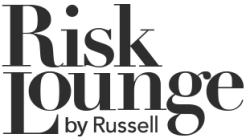
As research found natural catastrophes have cost the insurance industry on average $90 billion per year for the past three decades reinsurers have been warned they face a regulatory burden bigger than any other part of the financial services sector
Launched in Monte Carlo and claimed to be the world’s largest collaboration between academia, industry and government, the Willis Research Network (WRN), said it is marshalling the expertise of its international membership base to assess the physical, strategic, operational, and financial risks posed by extreme events.
Rowan Douglas, Chairman of the WRN and CEO of Global Analytics, said: “From corporate financial stress and bankruptcy on Wall Street, to poverty and mortality in developing countries, it is increasingly clear each day that our industry’s and our society’s sustainability is inextricably linked to our ability to avoid and manage extremes.”
He added: “The obligations imposed by regulators to ensure our industry has sufficient capital to withstand the maximum probable losses expected once every 200 years are only set to toughen with the introduction of laws like Solvency II, the creation of an Office of National Insurance within the U.S. Treasury, and a reshuffling of financial regulation in Britain.
“No other branch of the finance industry has to manage to such extreme thresholds of sustainability as part of its everyday operations as ours, so it makes perfect sense to position insurers at the forefront of global sustainability,”
At the launch WRN highlighted the costs for all types of natural catastrophes have averaged $90 billion per year, with 78% of those natural catastrophes being weather related.
“Commonly cited risk drivers include threats imposed by variability in today’s climate, development pathways increasing human vulnerability including population growth and urban concentration, natural resource depletion, low quality housing, and additional potentially devastating, uncertain risks from climate change that may worsen weather-related catastrophes,” reportedWRN. “In a world where systemic risk has led to the unravelling of our financial system, the reinsurance industry, backed by cutting-edge science, is in a strong position to help industry and governments share the burden and costs of extreme events.”





